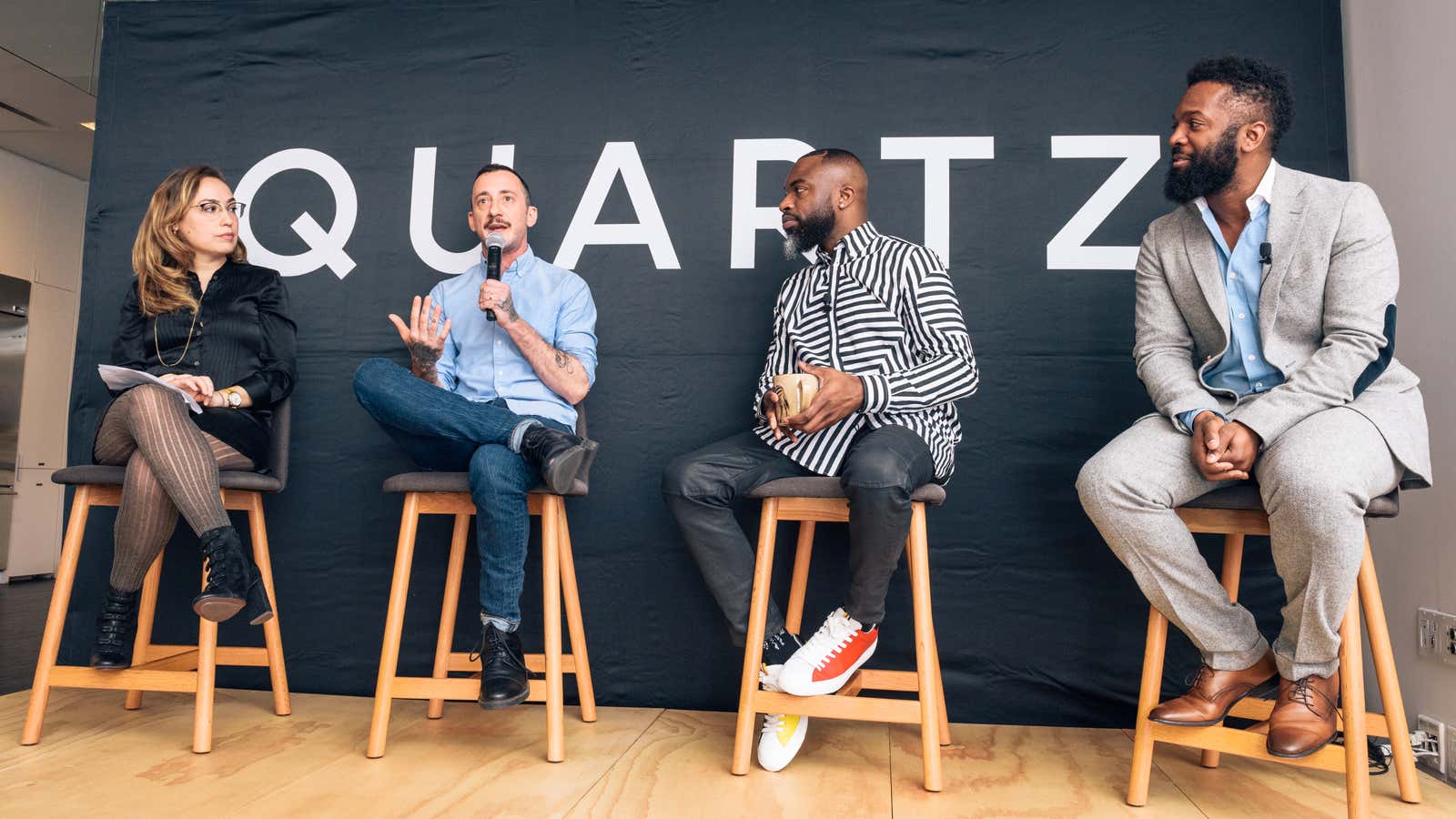Patriarchy is a trap and men keep falling for it.
The oppressive system hurts women and people of color—but it’s also harmful to men.
That was the takeaway from a thoughtful conversation between writers Baratunde Thurston, Darnell Moore, and Thomas Paige McBee on Dec. 4 at Quartz’s headquarters in New York. The discussion was part of How We’ll Win: The Other Half, a look at how men can be allies in a post-Me Too world.
“Patriarchy, by default, doesn’t just harm women, it harms all of us because it defines, delimits and limits our capacity to be fully human,” said Moore.
How can men make the world a more equitable place? By ceding some of their privileges.
“How we will win, then, is by losing,” Moore continued. “You know, you [men] have to give up some shit. You have to lose… power and be willing to lose prestige, be willing to lose money.”
This requires self-awareness and self-reflection, which many men aren’t accustomed to doing. “The folks with the actual power will rarely just give it up,” Thurston said.
In Western society, men are taught from a young age what it means to be a “man,” and this typically includes being powerful, strong, and unemotional.
“Boys learn uniformly that in order to be a man you have to be not girly or gay, which basically is everything that makes you human,” McBee said. Some of them might have genuinely never thought critically about their masculinity, and how it affects women, before. “Most men, I don’t think, are being given a sort of larger sociological understanding of how we all got here… They’re still in that [masculinity] narrative, they never broke out of the box.”
But there’s a way to get through to these men, to convince them that giving something up is in their best interest.
“It is the obligation of the oppressed to consider their oppressors as they liberate themselves,” Thurston says. That is, those with less privilege in society—those who aren’t white, straight men—work to create systems that are more equitable, they need to think about how to include more privileged people in their vision of the society they’re trying to create—one that is freer and grants more people the chance to succeed.
“[Men] need workshops and an invitation that paints [in their] imagination [a world] that’s also free,” Thurston says. “Men, you’re going to get something, too. You’re going to get a higher GDP, cleaner air. You’re going to get daughters that can earn as much as your sons. You’re going to get a whole bunch of self-interested shit that is just good for you, not because you… [have] deep moral values, but because you want something, and the best way to get it is an inclusive freedom, and that includes you, too.”
